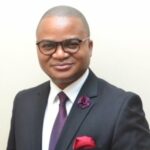Hope fades as economy squeezes Malawians
Published on January 14, 2013 at 7:14 AM by FACE OF MALAWI
As Malawians continue to groan under the yoke of economic reforms, pessimism clouds their outlook for 2013 as hope fades that the year will bring better tidings.
Asked in a Nation on Sunday survey whether they are hopeful that the economic situation will improve in 2013, 65 percent of the 1 509 respondents who participated in the survey said they do not expect things to pick up in the new year.
The findings raise questions about Malawians’ faith in the Economic Recovery Plan (ERP) the government of Malawi President Joyce Banda launched in 2012.
And the message from the Centre for Social Concern (CfSC) is dire: The situation is pushing more and more Malawians into the depths of poverty as the cost of living continues to rise on the back of a weak kwacha that was left to hold its own against major currencies.
According to the latest CfSC data, to meet basic food and non-food essentials, excluding items such as transport, school fees and clothes, a household of six members must spend at least K88 737 (about $260) in a month in Lilongwe, K83 047 (about $244) in Blantyre, K75 613 (about $222) in Mzuzu and K70 631 (about $207) in Zomba.
These scary figures overwhelm the miserable minimum wage which currently stands at K317 (about $0.93) per day, translating into about K7 000 (about $20) in a month. Survival for people who fall within this income category is a vicious battle against the odds.
CfSC social conditions research programme officer Alex Nkosi said recently the cost of living has eroded people’s incomes and forced them to live a precarious living.
“The impact on consumers is enormous. Most people cannot afford to meet their basic needs because of the rise in the cost of living which has not been matched by increases in salaries,” said Nkosi.
But government spokesperson Moses Kunkuyu on Friday painted a rosy picture of the situation in 2013, saying the economy would get back on its feet.
“Renowned economists have assessed our economy and say it is in recovery. We are talking of globally renowned economists. The IMF have also said we are on course,” said Kunkuyu.
He rubbished the recurring worry among Malawians that government is overspending and the economy might not improve because of this.
“Government shares the people’s view on overspending; that is why we have reduced the size of the presidential motorcade, that’s why some ministers did not get the recent pay increases and that’s why government departments have travel bans — we have changed,” said Kunkuyu.
President of the People’s Transformation Party (Petra), Kamuzu Chibambo, pointed a finger firmly at government ‘overspending’ as the reason for the pessimism among Malawians.
Chibambo said the over-dependency on donors will keep the country where it is forever and called for a rethink of strategy.
“The Executive takes away inspiration inasmuch as one would want to hope for the economy to improve — they cannot control expenditure, they have a bloated Cabinet and they have expensive errands and convoys and they illegally fire senior government officials which cost the economy,” he said.
Human rights activist Billy Mayaya said the pessimism stems from the poor articulation of the critical success factors in ERP.
“The rising prices of basic commodities only translate to a life of more austerity for the majority of citizens who live below the poverty line and whose salaries have not increased in order to leverage rising living costs.
“There is political will under the current leadership, but political will alone won’t grow this ailing economy. There is need to cast a critical eye at the economic model we have relied upon for years which has run out of steam. We need to collectively harness our energies as a people to commit to this process of economic recovery. Solutions won’t come from Washington or Brussels,” said Mayaya.


